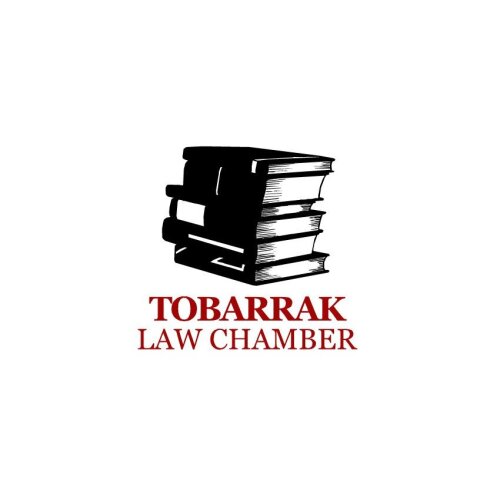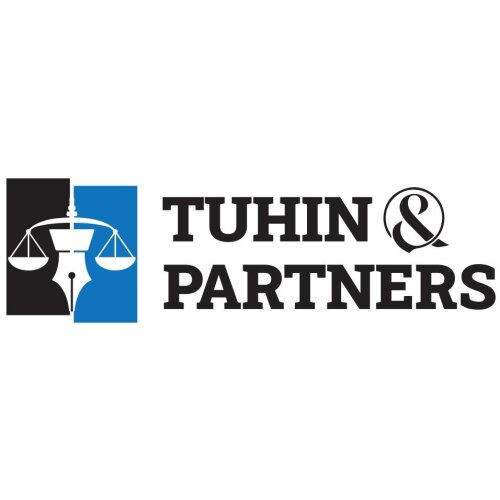Best Data Center & Digital Infrastructure Lawyers in Bangladesh
Share your needs with us, get contacted by law firms.
Free. Takes 2 min.
Or refine your search by selecting a city:
List of the best lawyers in Bangladesh
About Data Center & Digital Infrastructure Law in Bangladesh
Data center and digital infrastructure law in Bangladesh is a growing area reflecting the rapid technological advancements and digital transformation happening in the country. The government has embarked on initiatives like “Digital Bangladesh” to increase internet penetration, foster e-governance, and attract foreign investment in ICT sectors. As a result, demand for secure, well-regulated data centers and robust digital infrastructure has increased, bringing legal and regulatory considerations to the forefront.
Data centers are specialized facilities that store, manage, and disseminate data at large scales, serving banks, telecoms, government bodies, and various enterprises. Digital infrastructure includes not just the physical data centers but all digital assets such as fiber optic networks, cloud services, and cybersecurity frameworks. The need for compliance with data protection, privacy, and handling standards is critical both for investors and service providers in this field.
Why You May Need a Lawyer
Engaging a lawyer specializing in data center and digital infrastructure law in Bangladesh can help you navigate the complex legal, regulatory, and operational challenges. Here are some common situations where legal assistance is highly valuable:
- Establishing or operating a data center, which may require a range of licenses and regulatory clearances
- Complying with data privacy, data localization, and information security regulations
- Drafting and negotiating contracts for digital infrastructure services or partnerships
- Dealing with cross-border data transfer or multijurisdictional projects
- Addressing government inspections, compliance audits, or legal disputes regarding operations
- Protecting intellectual property and proprietary digital assets
- Handling breaches of data or infrastructure security, including incident response and liability issues
- Navigating tax, investment, and labor law requirements specific to the technology sector
Legal expertise ensures that your business adheres to local laws, secures necessary permits, and minimizes the risk of regulatory penalties or litigation.
Local Laws Overview
Several key laws and regulations impact data center and digital infrastructure activities in Bangladesh:
- Information and Communication Technology Act 2006 (amended 2013): Sets out legal recognition for digital records and includes provisions related to data security, cybercrime, and electronic governance.
- Digital Security Act 2018: Provides for measures to protect personal and organizational information from cyber threats, with strict controls on data management and security obligations.
- Bangladesh Telecommunication Act 2001: Regulates telecommunications, including network infrastructure and licensing requirements for service providers.
- Bangladesh Computer Council (BCC) Guidelines: Issues standards for data centers and digital infrastructure security, certification, and operational protocols.
- Cross-border Data Policy: There are emerging rules around data localization, requiring certain types of data to be stored within Bangladesh, affecting multinational operations.
- Contract and Commercial Laws: General laws governing agreements, intellectual property, dispute resolution, and liability also apply to digital infrastructure transactions.
Compliance is overseen by bodies like the Bangladesh Telecommunication Regulatory Commission (BTRC), Ministry of Posts, Telecommunications and Information Technology, and the BCC.
Frequently Asked Questions
What is considered a data center under Bangladeshi law?
A data center in Bangladesh is typically defined as a secured facility used to house computer systems, storage systems, networking equipment, and associated components for storing, processing, and disseminating data. Both private and public entities can operate data centers, subject to regulatory oversight.
Is government approval required to build or operate a data center?
Yes, establishing a data center in Bangladesh often requires multiple approvals including business registration, environmental clearance, and compliance with local ICT guidelines. Additionally, specific licenses from the Bangladesh Telecommunication Regulatory Commission may be required.
Are there data localization laws in Bangladesh?
Bangladesh has been introducing data localization measures for certain categories of information, particularly relating to government, financial, and critical national infrastructure data. Businesses may be required to store and process such data within the country’s borders.
What kind of data security standards must my data center comply with?
Data centers should comply with both national and international standards set by the Bangladesh Computer Council for data security, including physical and cybersecurity measures, redundancy, disaster recovery, and incident management protocols.
How are cross-border data transfers regulated?
Cross-border data transfers are closely supervised, especially for sensitive or regulated data. Transfers may be allowed under specific legal agreements or where adequate protection is assured in the destination country, subject to regulatory clearance.
What are the penalties for non-compliance with data protection laws?
Non-compliance with data protection and digital security laws may incur fines, operational shutdown, or even criminal liability, depending on the severity of the breach or violation.
Can foreign companies invest or operate in the data center sector?
Yes, foreign investment is permitted in the data center sector, subject to compliance with foreign investment guidelines and sector-specific regulations. Joint ventures and direct investments are common, but regulatory approvals are essential.
What should be included in a data center service agreement?
A comprehensive agreement should specify service levels, uptime guarantees, data ownership, liability clauses, data protection measures, incident response, termination terms, and dispute resolution mechanisms. Legalization and notarization may be required for enforceability.
Who monitors data center compliance and licensing?
The main regulatory bodies include the Bangladesh Telecommunication Regulatory Commission and the Bangladesh Computer Council. Regular inspections, certifications, and audits are conducted to ensure compliance.
How can a lawyer help with data center disputes or breaches?
A qualified lawyer can guide you through legal remedies for contract breaches, negotiate settlements, represent you before regulatory bodies, and advise on regulatory reporting requirements during a data breach or operational dispute.
Additional Resources
If you seek legal guidance or want to learn more about data center and digital infrastructure laws in Bangladesh, these resources may be helpful:
- Bangladesh Telecommunication Regulatory Commission (BTRC) for licensing and policy updates
- Bangladesh Computer Council (BCC) for ICT security guidelines and certifications
- Ministry of Posts, Telecommunications and Information Technology for digital transformation and Smart Bangladesh initiatives
- Bangladesh Association of Software and Information Services (BASIS) for industry networking and guidance
- Local law firms specializing in technology and infrastructure law
Next Steps
If you require assistance with data center or digital infrastructure matters, follow these recommended steps:
- Identify your specific legal needs, such as business setup, compliance, dispute resolution, or contract negotiation
- Prepare documentation regarding your data center operations or planned investments
- Consult with a lawyer or law firm specializing in ICT and infrastructure law
- Work collaboratively with your legal advisor to ensure compliance with all local rules and to reduce potential legal risks
- Stay informed about evolving regulations to maintain ongoing compliance and operational security
Taking these steps can help protect your interests, ensure regulatory compliance, and support successful operation in Bangladesh’s dynamic digital infrastructure sector.
Lawzana helps you find the best lawyers and law firms in Bangladesh through a curated and pre-screened list of qualified legal professionals. Our platform offers rankings and detailed profiles of attorneys and law firms, allowing you to compare based on practice areas, including Data Center & Digital Infrastructure, experience, and client feedback.
Each profile includes a description of the firm's areas of practice, client reviews, team members and partners, year of establishment, spoken languages, office locations, contact information, social media presence, and any published articles or resources. Most firms on our platform speak English and are experienced in both local and international legal matters.
Get a quote from top-rated law firms in Bangladesh — quickly, securely, and without unnecessary hassle.
Disclaimer:
The information provided on this page is for general informational purposes only and does not constitute legal advice. While we strive to ensure the accuracy and relevance of the content, legal information may change over time, and interpretations of the law can vary. You should always consult with a qualified legal professional for advice specific to your situation.
We disclaim all liability for actions taken or not taken based on the content of this page. If you believe any information is incorrect or outdated, please contact us, and we will review and update it where appropriate.
Browse data center & digital infrastructure law firms by city in Bangladesh
Refine your search by selecting a city.










